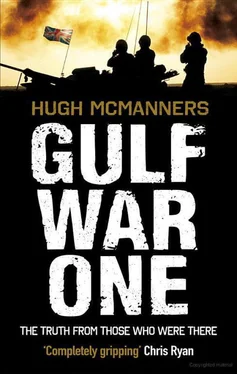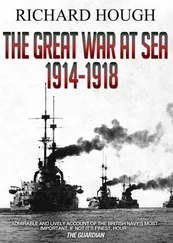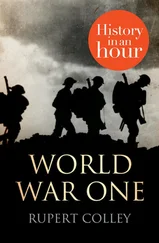Lieutenant General Walter Boomer
General Officer Commanding, 1 Marine Expeditionary Force, United States Marine Corps
There are a lot of radical religious folks in Saudi Arabia. We were anathema to them. We took over all their bases, airfields and ports – everything. But it was done with very little strife. We tried to respect what was important to them. I recall only one incident, which I don’t think even turned into a fistfight – and nobody shot at each other. Not having alcohol was fantastic from my perspective.
Dr Mary McLoughlin
We never discussed what was going on with anybody Iraqi. Nobody said anything at all to us. It was too dangerous – one word could get them and their families killed.
But you could see they were horrified at Saddam having invaded Kuwait, from the looks on their faces, their sudden withdrawal from foreigners, and their not talking to us. But otherwise they were kind and supportive to us. In fact I cannot remember any time when any Iraqi was unkind to us.
Lieutenant General Walter Boomer
General Officer Commanding, 1 Marine Expeditionary Force, United States Marine Corps
The mission we’d been given by Central Command was ‘To protect the critical oil and port facilities of Al Jubayl, its area, and Saudi Arabia, and the island state of Bahrain, destroying and delaying enemy forces as far north as possible’. This was of course far more than one brigade could accomplish.
General Hopkins began to create a defensive position on the fly as each of his units arrived. We immediately began deployment of the rest of the division, with the air wing and logistical force, in a continuous flow on the heels of our 7th Brigade, which didn’t stop until I’d got everyone there.
Dr Mary McLoughlin
I sat around in the apartment for a few days, then attended several meetings in the hospital. We expected Saddam to withdraw, but after a week or so, it looked as though his army was settling in, with the other nations preparing for a long siege. We also talked amongst ourselves about conspiracy theories – that the Americans had encouraged Saddam Hussein to take over Kuwait. We were sure he’d realise he’d made a mistake and pull out.
There were now rumours of engineers being rounded up and used as human shields at oil installations and infrastructure points around the country, especially around Baghdad. I went to ask the hospital HR people to give me another job, as it was very dangerous to be an unemployed foreigner in Iraq, and so ended up looking after the psychological and medical needs of the hospital staff. This was very suitable because by this stage, members of staff were beginning to have nervous breakdowns and need counselling. I was older than most, and having worked before in Africa, was more used to violence and sieges, and the lack of rights all round.
Saddam and his croneys were now the boss, with no going crying to the United Nations demanding to be got out. We might have our rights, but they weren’t doing us any good.
Major General Alexander Harley
Assistant Chief of Defence Staff (Overseas) and Deputy Director of Joint Operations, Ministry of Defence, Whitehall
During a crisis, Whitehall’s daily routine starts with the MoD Chiefs of Staff meeting at 8.30am, to deal with a host of papers prepared by their night staff, driven by the Deputy Chief of Operations – me – taking decisions on issues within their purview. This passes across to the Cabinet Office, who deliberate from 10.30 until 12. Their instructions came back to the MoD for me to collate, and if necessary the chiefs met again in the afternoon. The Joint Commander, Paddy Hine, was part of this process, constantly travelling to and from High Wycombe, mostly by helicopter to Battersea.
Brigadier Patrick Cordingley
Commander, 7th Armoured Brigade
My military career was coming to the end. Most of my brigade had been together for two years and were very well trained. I was looking to the future; maybe as a general, maybe not, but it had all been bloody good fun. But then, in August 1990, there was this invasion of Kuwait. It never occurred to me that my brigade would get involved.
Dr Mary McLoughlin
Various things happened to increase the tension and make us extremely nervous and unhappy. International sanctions were clamped fairly tightly on Iraq, which included stopping the importation of pharmaceuticals and chemicals, so we couldn’t get any resupply of drugs for the hospital.
Fairly soon, we were running out of specialist heart, lung and cancer drugs. My close buddy ran the kidney transplant ward. We not only ran out of the chemicals that prevented the rejection of the new kidneys, but also the chemicals needed to run the kidney dialysis machines. So with kidneys being rejected, we had to refer them to Iraqi hospitals; but if we didn’t have the required drugs, the run-down Iraqi hospitals certainly wouldn’t have them, so we knew we were referring them to certain death. This was very distressing.
Lieutenant General Walter Boomer
General Officer Commanding, 1 Marine Expeditionary Force, United States Marine Corps
To be frank, we were the only force available on the ground ready to fight. The army were bringing everything in as quickly as they could, but it was coming in by air, whereas we’d landed complete with all our supplies and equipment. We had a huge amount of combat supplies, enough for something like thirty days’ fighting – a really huge amount.
Lieutenant Colonel Charles Rogers
Commanding Officer, Staffordshire Regiment
With the Staffords being axed and merged with the Cheshires in the ‘Options for Change’ defence cuts, we were talking to them about badges, buttons and so on, plus preparing for a tour of Northern Ireland. I was on leave, listening to news of the invasion from a beach at the Isle of Wight. The media opined it most unlikely that a UK armoured brigade would be sent. But when we returned to our barracks at Fallingbostel [Germany], it was clear that this had become the most likely option.
Dr Mary McLoughlin
Within a couple of weeks of the invasion, the Iraqi secret police started a roundup of the thousands of foreign engineers working in Iraq, beginning with the Americans, then the British, leaving engineers from former Soviet countries like Yugoslavia until the very end. At the same time, the Iraqis began bussing in westerners from Kuwait, many with families; buses full of western people and children passing us in the street going to God-knows-where as human shields, or to concentration camps, which was particularly distressing.
Lieutenant Colonel Arthur Denaro
Commanding Officer, Queen’s Royal Irish Hussars
We were on exercise on the Soltau training area with our Challenger tanks, during one of the hottest German summers for years. It was a total dust bowl. The Corps Commander, General Charles Guthrie, flew in by helicopter, and I joked to him that we were doing ideal desert training. Four weeks earlier I’d had a really bad polo accident, splitting my skull in four places, with a metal plate inserted. Charles Guthrie was very cross with me for being out at all. But because my regiment had just arrived in Germany, this exercise was incredibly important. The other two battle groups in the brigade, the Scots Dragoon Guards and the Staffords, had both taken part in intensive live firing training at BATUS in Canada, which we hadn’t.
Читать дальше












